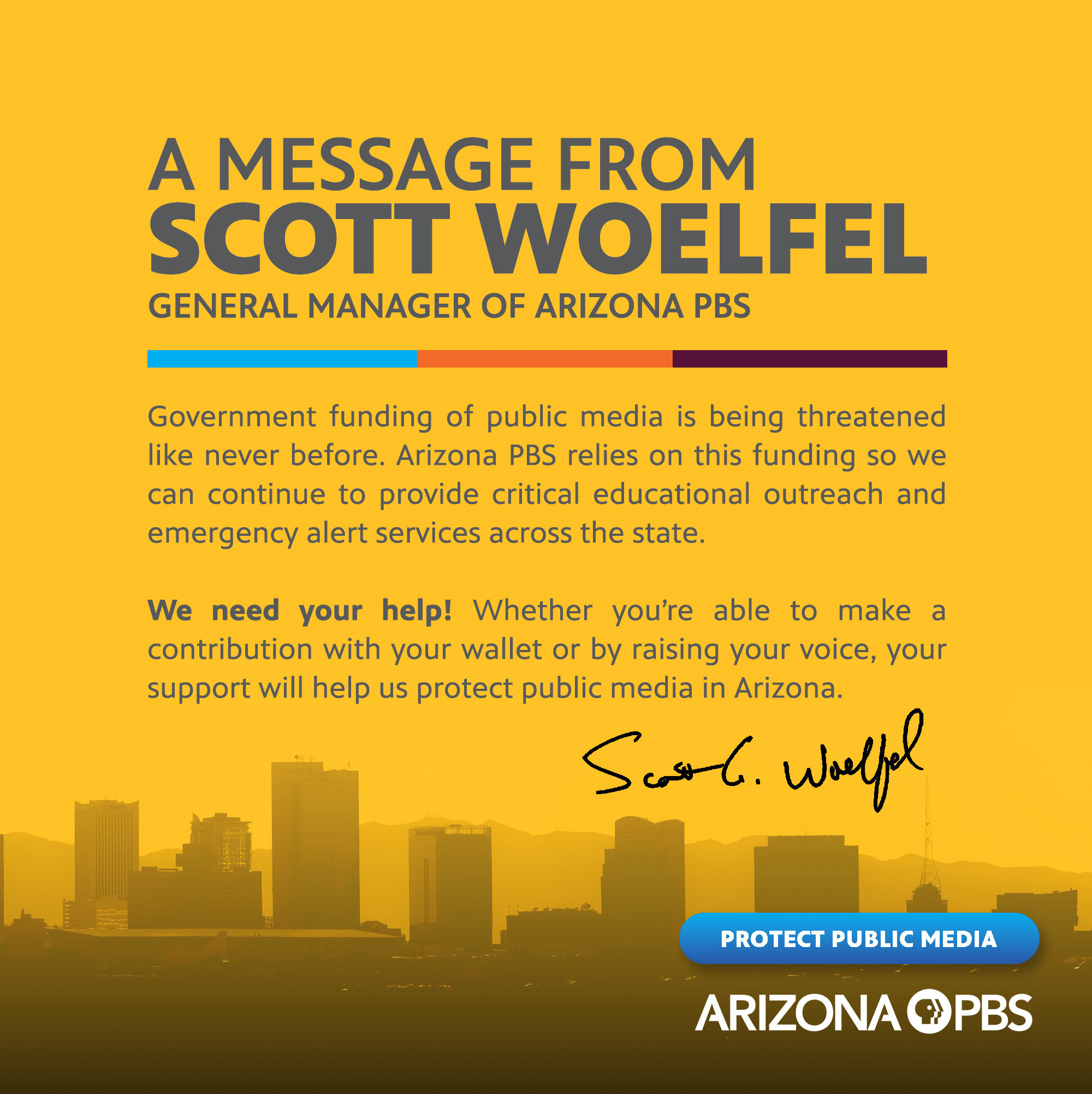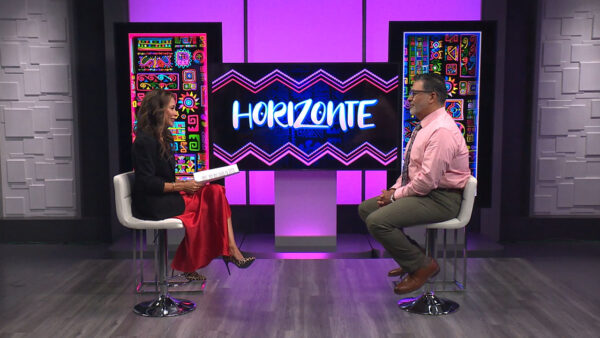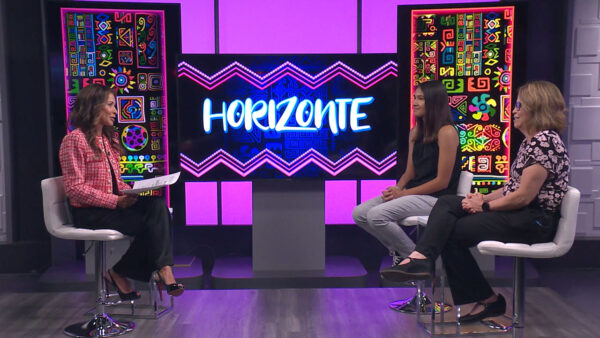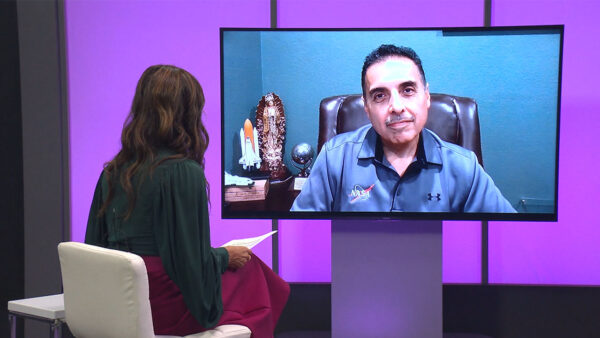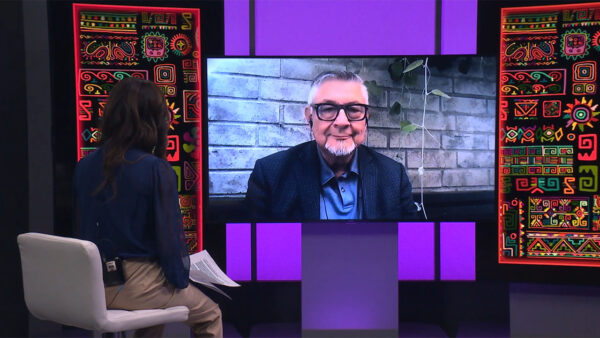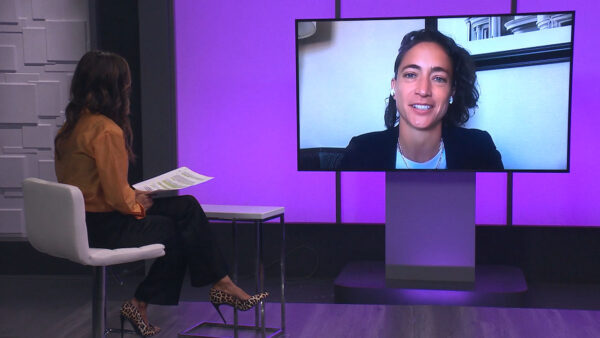Arizona State University hosted a town hall focused on higher education, specifically on the White House Hispanic Initiative and college affordability. The event featured U.S. Secretary of Education Arne Duncan, ASU President Michael Crow, and University of Maryland, Baltimore County President Dr. Freeman A. Hrabowski III. Dr. Hrabowski talks about the town hall and the importance of math and science today.
José Cárdenas: Thank you for joining us. This week, ASU hosted a town hall focused on higher education, specifically on the White House's Hispanic initiative and college affordability. The event featured the U.S. Secretary of Education Arne Duncan. In addition to Duncan, there were two other panelists, ASU President Michael Crow and joining me tonight is the University of Maryland Baltimore County President Dr. Freeman A. Hrabowski III who was also on this panel. Dr. Hrabowski, it's an honor to have you on our show tonight. I do want to talk about what was discussed at the town hall but before that, just last week, we celebrated the 50th anniversary of Martin Luther King's "I Have a Dream" speech. In many ways, your life story embodies that dream. You were actually an eye witness to history, and let's talk about that first.
Dr. Freeman A. Hrabowski: I grew up in Birmingham, Alabama, and at age 12, heard Dr. King suggest that if children could participate in a march for better schools, that all of America would appreciate the need to educate children and to see that even children could see the difference between right and wrong. I said I've got to participate. I did.
José Cárdenas: You did over your parents' objections?
Dr. Freeman A. Hrabowski: My parents did not want me to go. They had insisted that I go to church, middle of the week and hear this man talk. I didn't want to go. I sat in the back of the room eating M ‘n' M's and doing my math until he said that. And I thought, wow, is it possible we might be able to go to better schools? Is it possible I would no longer have to have books that were given to us after the white kids had finished with them? And so I wanted to go and my parents said absolutely not because they were worried and yet within a day, that next morning, they said I could. I did go, I did participate, the dogs, the fire hoses, it was awful. Most importantly, I spent five days in jail.
José Cárdenas: And this followed a personal encounter with --
Dr. Freeman A. Hrabowski: With the police commissioner, who was not happy we were doing this and he threw me into the police wagon, he actually sat on me, it was awful. He was so disgusted with the fact that this was happening in his town. So it was quite an experience and what it taught me and what it taught the children was that even kids can make a difference in their own lives, can feel empowered to take ownership of their education, and as a result of that experience and what America saw, we saw changes over a period of time in the Civil Rights Act and the Voter's Rights Act and I think it was a turning point in the history of our country.
José Cárdenas: How did it impact your life in terms of education?
Dr. Freeman A. Hrabowski: Sure, well I always loved math. I am a mathematician and I always wanted to be the best. What it did was to say that if I worked to be the best, all kinds of opportunities would be there and it also taught me the importance of leadership, being willing to stand up for what you believe in and to believe in my country so much that I would say when something is wrong, I need to talk about it. It taught me about civic engagement, and it helped me to believe that quite frankly, the sky was the limit, that all things were possible with hard work.
José Cárdenas: And speaking of leadership, since 1992, I believe, you've been the president of the University of Maryland Baltimore County and in a role that has put you at the forefront of educational innovation.
Dr. Freeman A. Hrabowski: I've been very fortunate. My campus is an interesting model of inclusive excellence. It's very similar in many ways to ASU. The difference is we are smaller. We are about 14,000 students. We have students from 150 countries, and if someone had told me as a kid growing up in black Birmingham, never even being around students from other cultures or races, that one day I would be president of a university with students from all over the world, with research and with biotech companies on campus and I.T. companies, I would not have believed it. It's given me a chance to focus on some of the issues we face in our country, one of which involves the underrepresentation of certain groups in science and engineering. Another involves the underrepresentation of certain groups in colleges in general. Whether we're talking about the Hispanic population or the black population, while both have made progress in the numbers who are graduating, we are still below the national average and we need many more people with two and four-year degrees. If you just listen to how our country competes against other countries.
José Cárdenas: That was one of the subjects of discussion at the town hall. Fill us in a little bit about that.
Dr. Freeman A. Hrabowski: Sure. The secretary, Secretary Duncan, was willing to talk about all kind of things but he really wanted to listen to families and teachers and students, high school and college, talk about the issue of how we get more Hispanic students in particular, students from first generation college families, students of color, but particularly given ASU's strength with Hispanic students, what can we do to increase those numbers and what are the concerns people have? And Secretary Duncan was echoing what the president has said. We must find ways to help more families of all types to have what they need in order to send their kids to college and to see more students of all backgrounds completing college, and we talked about those issues and we listened to the questions of different people.
José Cárdenas: Cost seems to be on everybody's mind these days with some people questioning the value of a college education. What do you say to those people?
Dr. Freeman A. Hrabowski: The first thing I say is where would anyone be without an education? If you see anyone in our society who is making money and living legally, quite frankly, you're talking about more and more education. When you think about the challenge in certain parts of the country where people are selling drugs and you ask why are they selling drugs? Well, they don't have any other skills that can be used to get a job. We need ways of educating all of our children and all of our children so they can have the skills they need to get a job that would be considered a law-abiding citizen. I mean, the challenges of kidss getting into trouble, of kids finding themselves in jail, often would be a direct correlation with how much education they've gotten. So when we look at the global economy, what we see is that other countries are moving ahead of us in the percent of students going on to get those college degrees. I don't think there's anything more important to the country's future and to the future of every family than to help students to receive more education, either two-year degrees or four-year degrees or even beyond that amount.
José Cárdenas: The underrepresentation that you've talked about is particularly a problem with respect to the STEM areas.
Dr. Freeman A. Hrabowski: That's exactly right. We're looking at Ph.D.s in STEM areas, perhaps three percent of Hispanics, perhaps two percent of blacks have degrees in STEM. To give you one example, to give people at why STEM is so important, when we talk about STEM, we need to also say the arts and humanities are critical, too. We need students in all these disciplines but the issue with STEM is that when you think about healthcare, and health disparities, if you look at the probability of a Hispanic woman or a black woman having diabetes at age 55, that probability is much higher than it is for the white population and many of these health problems are particularly severe for people of color and yet when you look at the Ph.D.s working on solutions at NIH, which really works on the hardest problems, the national institutes of health in my area, you're talking about perhaps between two and three percent of the scientists who are Hispanic, all types of Hispanic and under one percent black. In other words, very few scientists in our country come from populations where we see serious issues in healthcare and the other areas, whether we're talking about intelligence, defense, or the environment, we need people from all these backgrounds who bring their sociocultural perspectives to understand the issues and right now, the percentages are very small. So ASU and UMBC are producing more students than others but we can do much better.
José Cárdenas: What do we need to do to improve those numbers?
Dr. Freeman A. Hrabowski: I am convinced by start in k-12 and we start with families and we help families understand why we want their kids to be doctors or scientists or engineers and, believe it or not, as a math teacher, I'm asked often what can I do to make sure my child becomes a scientist or physician or an engineer and I surprise people. I say it starts with strong reading skills because when we look at problems in engineering or problems in medicine, we don't express those problems in numbers. We express those problems in words and the problem that so many people have, the challenge many people have, with standardized tests, when you're talking about getting into med school is that people don't read well enough to be able to go from the words to symbols to equations. If you give me a child who can read well, I can teach her to solve word problems. So it's important at the early ages to focus on reading and language skills and word problems with cooking, for example, and LEGOs and puzzles. Whether one is going into some of the creative areas in the arts or the sciences, those same skills are important.
José Cárdenas: Now, what about the roles of the universities? I saw your TED talk where you talked about even those kids who have a great interest in science change their minds after their first year.
Dr. Freeman A. Hrabowski: You've done your homework, I'm impressed.
José Cárdenas: And you pointed out part of the problem is the way we're teaching these kids.
Dr. Freeman A. Hrabowski: I say we need to change the culture of teaching and learning in science and engineering in our colleges and universities. Even students who are highly prepared, well prepared, sometimes, we have A.P. credits and high test scores, even many of those students will leave science and engineering within the first year or two and when you ask them why, rarely will they want to say they didn't do well academically because it's not a part of the culture in America for students to say I didn't do well in the class, they just get discouraged and leave. I think some of the work you're doing here at Arizona State University, work we're doing at UMBC, we are focusing more and more on rethinking the approach. We have something called course redesign. We've redesigned chemistry. We've gotten away from the lecture approach. People get bored listening to a lecture for an hour. You can't concentrate for an hour. I don't care what age you are. You really can't. You start thinking about other things. But if you design the course in such a way that students take ownership of the education and you give them problems and they have to discover the theories and they have to struggle with it themselves, then in working in groups, in using the technology in using the hands-on experiences, they begin to take ownership of the actual concepts. And we found amazingly that many more students are staying in science and engineering on our campus and learning a lot about how the science can connect to the real world. Very important.
José Cárdenas: Well, thank you so much Dr. Hrabowski for talking to us about those important things and hope to have you back on the show next time you're in Arizona.
Dr. Freeman A. Hrabowski: Delighted to be here, thank you.
Dr. Freeman A. Hrabowski:President, University of Maryland, Baltimore County;
